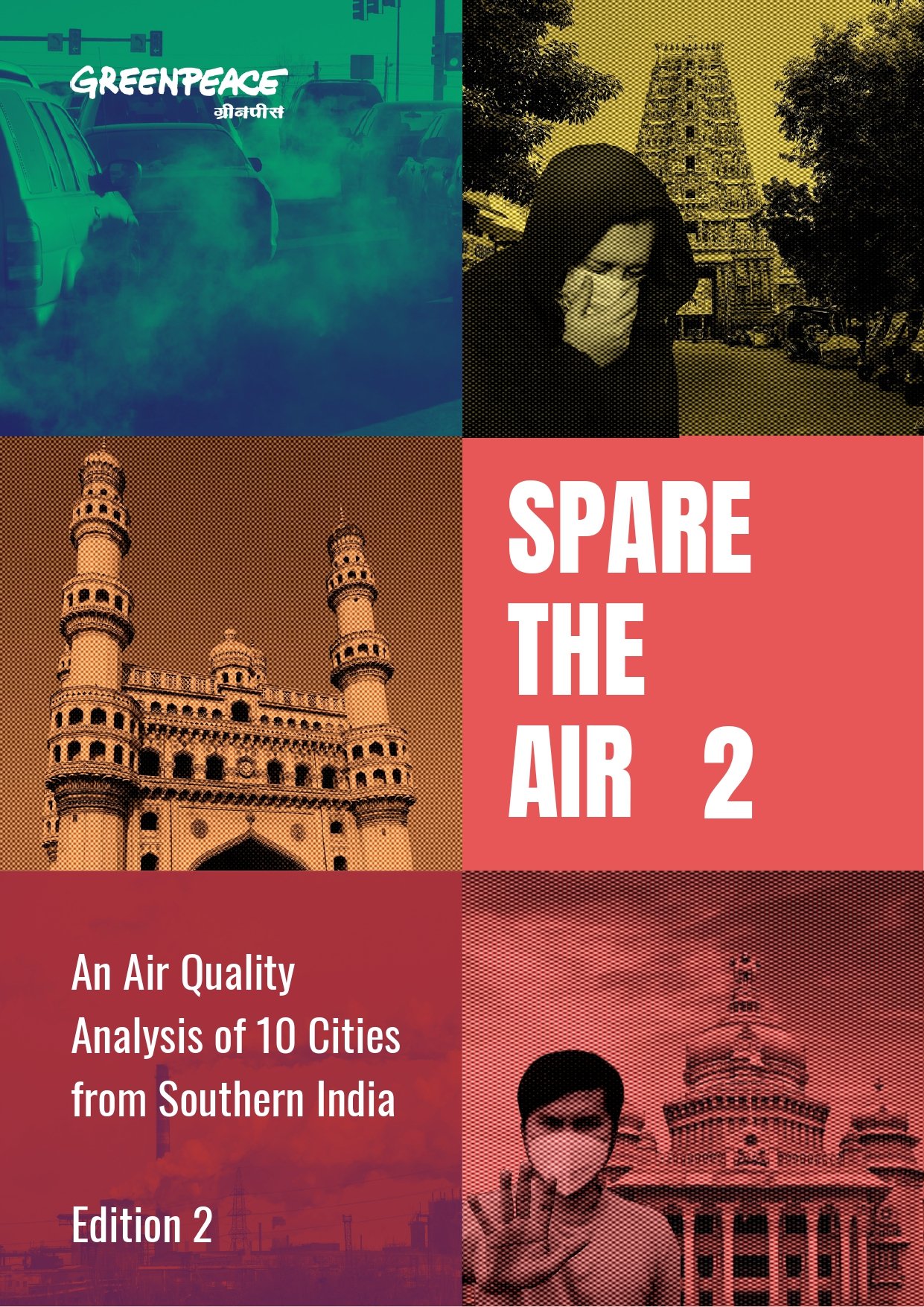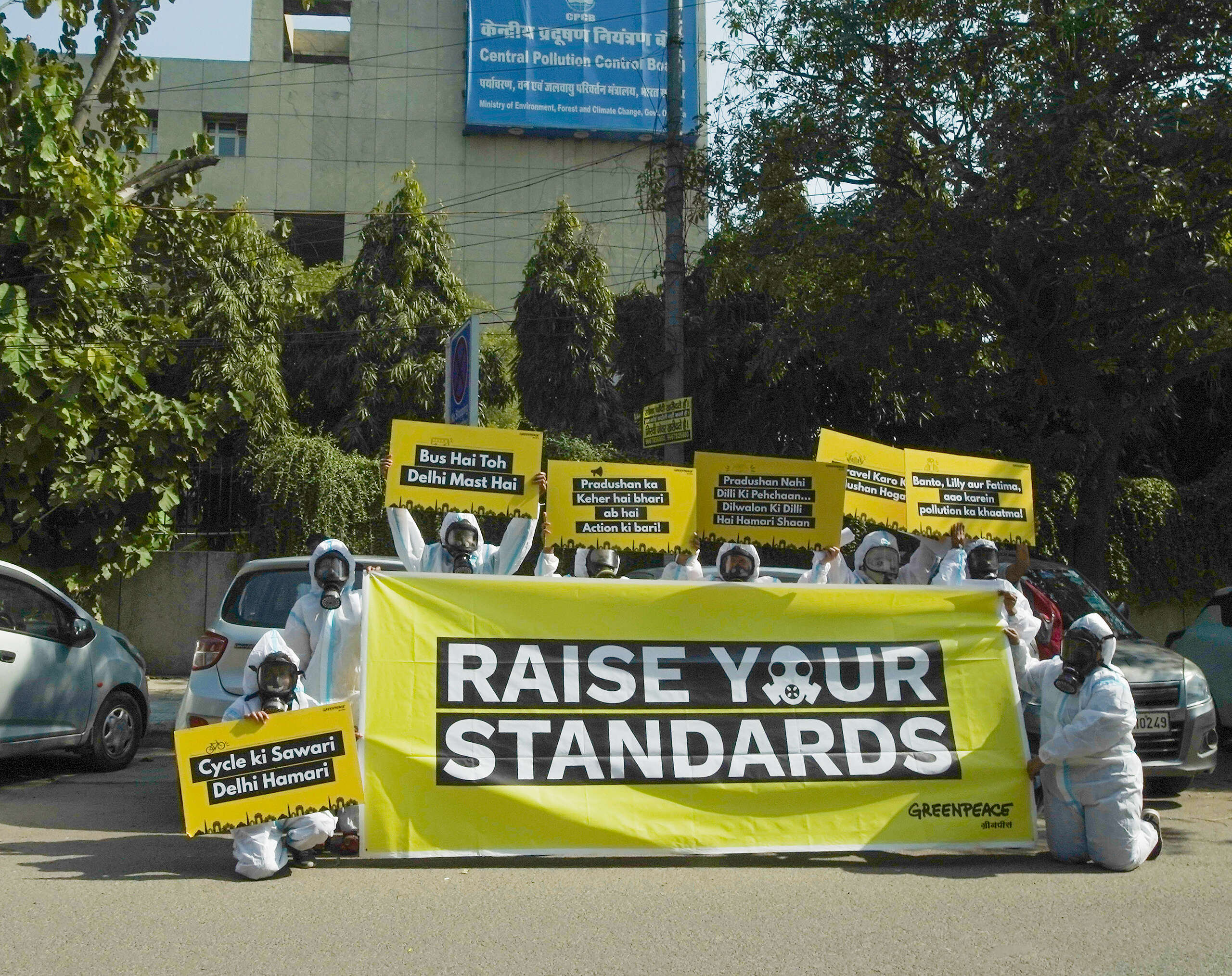(Research shows that long-term air pollution exposure increases the risk of severe COVID-19 infections and death)
New Delhi, 9 July: According to a new online tool by IQAir AirVisual and Greenpeace Southeast Asia [1], health damage from air pollution is expected to cost 1-5.8% of cities GDP in the major metropolitan cities of the world in the first half of this year. Of all 28 cities studied, Delhi bears the highest economic cost of air pollution as a percentage of GDP due to the impacts of PM2.5 and NO2 pollution. Air pollution in the city is linked to the loss of an estimated 24,000 lives in Delhi in the first half of 2020, despite a strict COVID-related lockdown. The counter also reveals that air pollution took a major toll on the city’s economy, at a cost of approximately US$3.5 billion [Rs 26,230 crore] over the last sixth months, an equivalent of 5.8% of Delhi’s total annual GDP. Similarly, in Mumbai, air pollution from PM 2.5 and NO2 is responsible for the loss of an estimated 14,000 lives and a cost of US$2.1 billion [Rs. 15,750 crore] since January 1, 2020. It is also estimated that the major metropolitan cities would face a cost of 3-6% of the cities’ GDP. The estimation is also expected to grow bigger in the upcoming winter season. See the cost of air pollution in your city here.
While some cities have seen a temporary return of blue skies as a result of quarantine restrictions, these gains were reversed as soon as lockdowns ended. Research shows that long-term air pollution exposure increases the risk of severe COVID-19 infections and death. [2] Chronic air pollution exposure is associated with diseases such as hypertension, diabetes, cardiovascular disease, and chronic lung disease. Patients with these conditions are at a greater risk of hospitalization with COVID-19. [3]
“Despite having comparatively better air quality because of a strict COVID-related lockdown, air pollution continues to be a serious public health crisis as well as a threat to our economy. As governments look to rebuild economies, it is more important than ever that investments are directed toward green, just and sustainable sectors of society. Rather than providing a last lifeline to the fossil fuel industry, we must invest in more economically viable solutions like renewable energy and clean powered public transport systems that also help the less privileged in the society. Now is the time for a rapid shift away from polluting fossil fuels, for our health, community, and for our economies,” said Avinash Chanchal, climate campaigner at Greenpeace India.
The intensifying health impacts from burning fossil fuels must be a wake-up call for policymakers. As the governments are disbursing economic packages to stimulate the economy, they also must ensure that economic recovery is synced with sustainability including clean-energy powered public transport, safe and nutritious food, and other behavioral changes.
Notes:
[1] The Greenpeace Southeast Asia/IQAir AirVisual counter applies an algorithm to ground-level air quality data to calculate the projected cost of air pollution from PM2.5 and NO2 in cities around the world since 1 January, 2020. The counter uses real-time air quality data from IQAir AirVisual’s database, combined with scientific risk models, as well as population and health data.
The counter builds on methodology from the Greenpeace Southeast Asia and Centre for Research on Energy and Clean Air (CREA) report “Toxic Air: The Price of Fossil Fuels”, which compiled the latest scientific results on exposure-response relationships between air pollution and health outcomes, as well as the economic costs of health conditions that were linked to air pollution in the scientific literature.
The methodology used for the counter was developed by CREA. More details are available here.
[2] https://www.medrxiv.org/content/10.1101/2020.04.05.20054502v2
[3] https://www.cdc.gov/mmwr/volumes/69/wr/mm6915e3.htm
For further queries please contact:
Rohin Kumar
Communications Officer
Greenpeace India
[email protected]
Avinash Chanchal
Climate Campaigner
Greenpeace India
[email protected]


